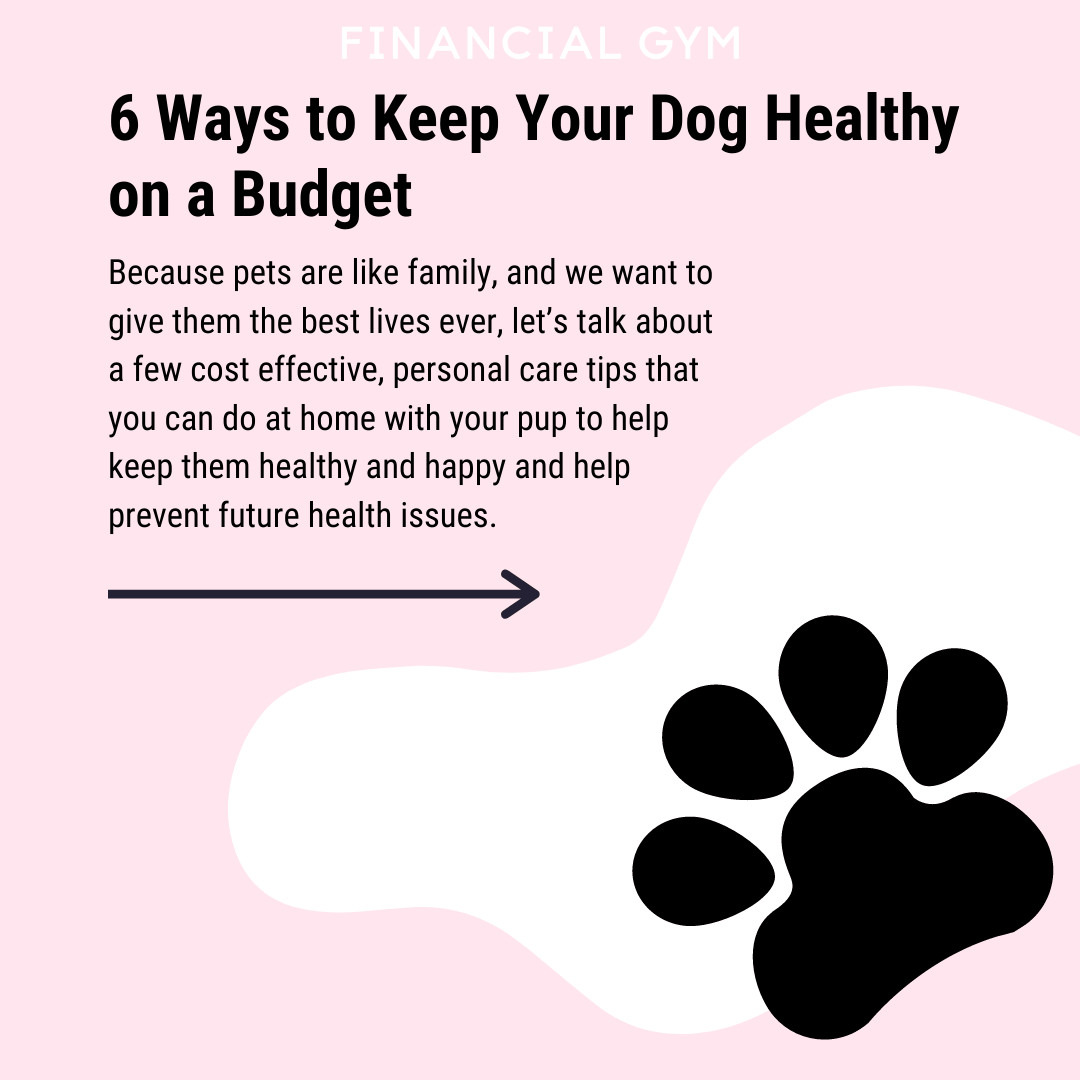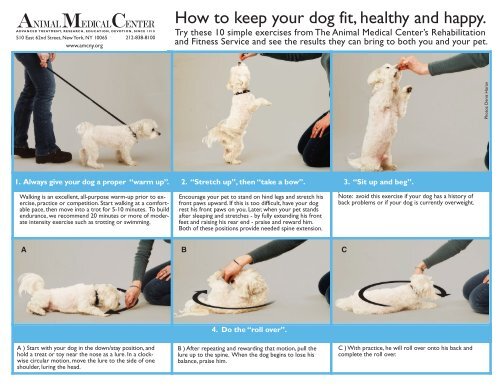To keep your dog healthy, provide a balanced, raw, home-prepared diet that includes fresh, whole foods to promote healing from within. Additionally, ensure regular veterinary visits, a nutritionally balanced diet, an active lifestyle, bonding time, mental stimulation, and ample relaxation.
Proper pet care includes a good diet, fresh water, clean bedding, plenty of exercise, and keeping up with vaccines, deworming, and flea and tick control. Some of the healthiest foods for dogs include cooked, unseasoned chicken, turkey, beef, fish, eggs, pumpkin, green beans, carrots, spinach, and sliced apples in moderation.
By incorporating these practices, you can contribute to a healthier and happier life for your furry friend.
Importance Of A Proper Dog Diet
Ensure the proper diet for your dog to keep them healthy and happy. Providing them with a balanced, raw, home-prepared diet full of fresh, whole foods will give them the nutrients they need to thrive. Regular veterinary check-ups and plenty of exercise are also essential for their overall well-being.
What Must You Do To Keep A Pet Healthy?
Regular veterinary visits are essential to good pet health. Talk to your pet’s veterinarian about how to keep your pet healthy. Provide your pet with a good diet, fresh water, clean bedding, and plenty of exercise. Keep up with your pet’s vaccines, deworming, and flea and tick control.Nursing Your Dog Back To Health Using A High-quality Diet
When it comes to nursing your dog back to health, feeding them a high-quality diet is crucial. Dogs are designed to eat a variety of fresh, whole foods, and a balanced, raw, home-prepared diet can provide the nutrients they need to heal from the inside out. Feeding your dog a high-quality diet can help restore their health, support their immune system, and improve their overall well-being. Here are some key tips to consider when choosing a diet for your furry friend:- Opt for natural, whole foods: Replace processed dog food with fresh, whole foods that are free from artificial additives and preservatives. This can include lean meats, fruits, vegetables, and grains.
- Focus on balanced nutrition: Ensure that your dog’s diet provides a balanced mix of protein, carbohydrates, healthy fats, vitamins, and minerals. This will help meet their nutritional requirements and support their recovery.
- Consult with a veterinarian or canine nutritionist: Seek professional advice to determine the specific nutritional needs of your dog based on their age, breed, and any underlying health conditions or dietary restrictions they may have.
- Consider a raw diet: Raw feeding has gained popularity among dog owners looking for a natural and nutrient-dense diet option. However, it’s important to educate yourself on the proper handling and preparation of raw food to minimize the risk of bacterial contamination.
- Transition gradually: When introducing a new diet to your dog, do it gradually to avoid digestive upset. Start by mixing small amounts of the new food with their regular diet, gradually increasing the proportion of the new food over time.
- Monitor your dog’s response: Pay attention to how your dog responds to the new diet. If they show signs of improved energy, coat condition, digestion, and overall health, it’s a good sign that the diet is benefiting them.
- Stay hydrated: Ensure that your dog has access to fresh and clean water at all times to maintain proper hydration.

Credit: www.akc.org
Lifestyle Changes For A Healthy Dog
Maintain a healthy lifestyle for your dog by providing a balanced diet, regular exercise, and quality veterinary care. Including your dog in family activities can also promote their overall well-being. Keep your furry friend happy and healthy for a long and fulfilling life.
A Nutritionally Balanced Diet
One of the most important lifestyle changes you can make for your dog’s health is ensuring they have a nutritionally balanced diet. Just like humans, dogs need a variety of fresh, whole foods to thrive. A diet that is raw and home-prepared is an excellent way to provide your dog with the nutrients they need to heal and maintain optimal health. By feeding your dog a diet that consists of high-quality proteins, healthy fats, and a balance of carbohydrates and fiber, you are giving them the best chance at a long and healthy life. Make sure to consult with your veterinarian or a canine nutritionist to determine the best diet plan for your furry friend.Regular Vet Visits
Regular veterinary visits are crucial in maintaining your dog’s overall health and well-being. Just like humans, dogs need routine check-ups and preventive care to catch any potential issues early on. Schedule annual wellness exams for your dog, where the veterinarian can perform a thorough physical examination, update vaccinations, and conduct various tests to assess your dog’s health status. These regular visits also allow for any concerns or questions you may have about your pet’s health to be addressed. Remember, prevention is key, and by keeping up with vet visits, you can ensure your dog receives the appropriate care they need to stay healthy.Exercise And Mental Stimulation
In addition to a nutritious diet and regular vet visits, exercise and mental stimulation are essential lifestyle changes for a healthy dog. Just like humans, dogs need physical activity to maintain a healthy weight, strengthen their muscles, and promote cardiovascular health. Plan daily exercise sessions for your dog, whether it’s going for walks, playing fetch, or engaging in other fun activities. Along with exercise, mental stimulation is equally important. Dogs are intelligent creatures that thrive on mental challenges. Provide puzzle toys, teach them new commands and tricks, or engage in interactive play to keep their minds sharp and engaged. These lifestyle changes not only promote physical health but also contribute to your dog’s overall happiness and well-being. By making these lifestyle changes, you are ensuring your dog leads a healthy and fulfilling life. A nutritionally balanced diet, regular vet visits, and ample exercise and mental stimulation are key factors in maintaining your dog’s health and well-being. Remember, always consult with your veterinarian for personalized advice and guidance on the specific needs of your furry friend.Healthy Foods For Dogs
When it comes to keeping your dog healthy, providing a balanced diet is essential. Dogs thrive on a variety of fresh, whole foods that provide them with the nutrients they need to flourish. Consider incorporating these healthy foods into your dog’s diet:
Top Recommended Dog Treats
- Cooked, Unseasoned Chicken, Turkey, or Beef
- Cooked, Unseasoned Fish
- Cooked, Unseasoned Eggs
- Cooked Pumpkin
- Cooked Green Beans
- Cooked Carrots
- Cooked Spinach
- Sliced Apples – In Moderation
These dog treats not only taste delicious but also offer various health benefits. They are rich in essential nutrients and can be a great alternative to highly processed commercial treats. Just remember to use moderation when feeding your dog these treats to maintain a balanced diet.
Cooked, Unseasoned Meats
Meat is a great source of protein for your furry companion. Cooked, unseasoned chicken, turkey, or beef can be incorporated into their meals to provide essential amino acids necessary for muscle growth and maintenance. Make sure to remove any bones and seasoning before serving to avoid potential health risks.
Cooked Vegetables And Fruits
Vegetables and fruits can offer a variety of nutrients to your dog’s diet. Cooked vegetables like pumpkin, green beans, carrots, and spinach are loaded with vitamins and minerals. Apples, when sliced and offered in moderation, can be a tasty and healthy treat for your dog. Just be cautious of any potential allergies or digestive sensitivity, and always consult with your veterinarian before introducing new foods.

Credit: financialgym.com
Tips For Keeping A Dog Healthy
Want to keep your dog healthy? Make sure to provide a balanced, raw, home-prepared diet, regular vet visits, plenty of exercise, mental stimulation, and bonding time. Remember, a healthy dog is a happy dog!
Exercise Daily
Regular exercise is vital for keeping your dog healthy and happy. Daily physical activity helps to maintain a healthy weight, strengthen muscles, and improve cardiovascular health. It also provides mental stimulation and helps prevent behavioral issues caused by excess energy. Make sure to engage your dog in activities that suit their breed and age. This can include walking, running, playing fetch, or participating in organized dog sports. Remember to start with shorter sessions and gradually increase the duration and intensity to avoid overexertion.Moderate Treats
Although treats are a great way to reward your furry friend, moderation is key. Overindulgence in treats can lead to obesity and other health problems. The key is to choose healthy and nutritious treats that provide benefits rather than empty calories. Opt for treats made with natural ingredients and avoid those with excessive sugar, salt, or artificial additives. Additionally, consider using treats as a tool for training and mental stimulation rather than as a substitute for affection. Always check with your veterinarian for specific treat recommendations based on your dog’s dietary needs.Regular Veterinary Visits
Regular visits to the veterinarian are crucial for maintaining your dog’s health. Routine check-ups can catch potential problems early, allowing for prompt treatment and prevention of serious conditions. Your veterinarian will perform a thorough physical examination, administer necessary vaccinations, and assess your dog’s overall well-being. They can also provide advice on nutrition, dental care, parasite prevention, and other important aspects of your dog’s health. Remember to follow your veterinarian’s recommended schedule for vaccinations, deworming, and flea and tick control.Oral Care
Oral hygiene is an often overlooked aspect of canine health. Poor dental hygiene can lead to gum disease, tooth decay, and other oral problems that can affect your dog’s overall well-being. Incorporate regular teeth brushing into your dog’s routine using specially formulated dog toothpaste and a soft-bristled toothbrush. Chew toys and dental treats can also help remove plaque and tartar buildup. Be sure to schedule regular professional dental cleanings with your veterinarian to ensure your dog’s teeth and gums stay healthy. In conclusion, following these tips for keeping a dog healthy will not only prolong their life but also enhance their quality of life. Regular exercise, moderation in treats, regular veterinary visits, and proper oral care are essential for your furry friend’s well-being. By incorporating these practices into your dog’s routine, you can ensure they lead a happy and healthy life for years to come.Maintaining Canine Health
Keeping your dog healthy is crucial to ensuring their overall well-being and enhancing their quality of life. By implementing a few simple practices, you can ensure that your furry friend thrives both physically and mentally. Maintaining canine health involves maintaining a proper diet and nutrition, regular exercise and grooming, as well as routine veterinary visits. Let’s explore each of these aspects in more detail.
Proper Diet And Nutrition
Your dog’s diet plays a vital role in their overall health. Feeding them a balanced and nutritious diet is key to keeping them in optimal condition. A high-quality dog food that is appropriate for their age, breed, and size is essential. Avoiding foods that are rich in artificial additives and preservatives can help prevent the development of health problems. Additionally, consider incorporating fresh, whole foods into their diet for added nutritional value. Foods like lean meats, fruits, and vegetables can provide essential vitamins and minerals that promote good health.
It’s important to note that some human foods can be harmful to dogs. Avoid giving your dog chocolate, grapes, onions, garlic, and any food that contains xylitol. These can be toxic to them and lead to serious health issues.
Regular Exercise And Grooming
Regular exercise is crucial for keeping your dog physically fit and mentally stimulated. Engaging in daily exercise activities such as walks, runs, or playtime can help prevent obesity and cardiovascular problems. It also provides an opportunity for them to release energy and strengthen their muscles.
Grooming your dog is not just about aesthetics; it is an essential part of their overall health. Regular brushing helps to remove dead hair, prevents matting, and keeps their coat clean and shiny. Regular baths help control fleas, ticks, and skin irritations. Additionally, keeping their nails trimmed and their ears clean can prevent infections and discomfort.
Routine Veterinary Visits
Regular veterinary visits are crucial for maintaining your dog’s health and detecting any potential issues early on. Your veterinarian will conduct a thorough examination, administer vaccinations, and perform preventive treatments. These visits also provide an opportunity to discuss any concerns or questions you may have about your dog’s health.
During the visit, your veterinarian may recommend additional preventive measures such as dental cleanings or blood tests to ensure your dog’s well-being. Following their advice and adhering to the recommended schedule for vaccinations and treatments will help keep your dog healthy and protected against common diseases.
In conclusion, maintaining your dog’s health requires proper diet and nutrition, regular physical exercise and grooming, as well as routine veterinary visits. By incorporating these practices into your dog’s care routine, you can contribute to their longevity and ensure their overall well-being.

Credit: www.yumpu.com
Frequently Asked Questions On Keep Your Dog Healthy
How Can I Get My Dog Back To Good Health?
To get your dog back to good health, focus on providing a balanced, raw, home-prepared diet. This will give them the nutrients they need to heal from the inside. Additionally, make simple lifestyle changes like regular vet visits, exercise, mental stimulation, and bonding time.
Remember to keep up with vaccines, deworming, and flea and tick control.
How Can I Keep My Dog Healthy And Live Longer?
To keep your dog healthy and live longer, follow these steps: 1. Provide a balanced diet. 2. Keep them active. 3. Build a strong bond. 4. Regularly visit the vet. 5. Provide mental stimulation.
What Must You Do To Keep A Pet Healthy?
To keep a pet healthy, follow these guidelines: – Regular veterinary visits for check-ups, vaccines, and flea/tick control. – Provide a balanced diet, fresh water, clean bedding, and plenty of exercise. – Avoid exposure to secondhand smoke. – Keep a lid on treats and provide mental enrichment.
– Brush your pet’s teeth regularly.
What Are The Healthiest Foods For Dogs?
The healthiest foods for dogs include cooked, unseasoned chicken, turkey, beef, fish, eggs, pumpkin, green beans, carrots, spinach, and sliced apples in moderation. These foods provide essential nutrients for your dog’s overall health and well-being. Remember to consult with your veterinarian before making any changes to your dog’s diet.
Conclusion
Maintaining your dog’s health is crucial for their overall well-being. By providing them with a balanced, nutritious diet and regular exercise, you can ensure they stay in good condition. Additionally, regular vet visits and mental stimulation are essential for their long-term health.
Remember to include your dog in your family activities and provide them with love and care. By following these guidelines, you can keep your furry friend healthy and happy for years to come.

